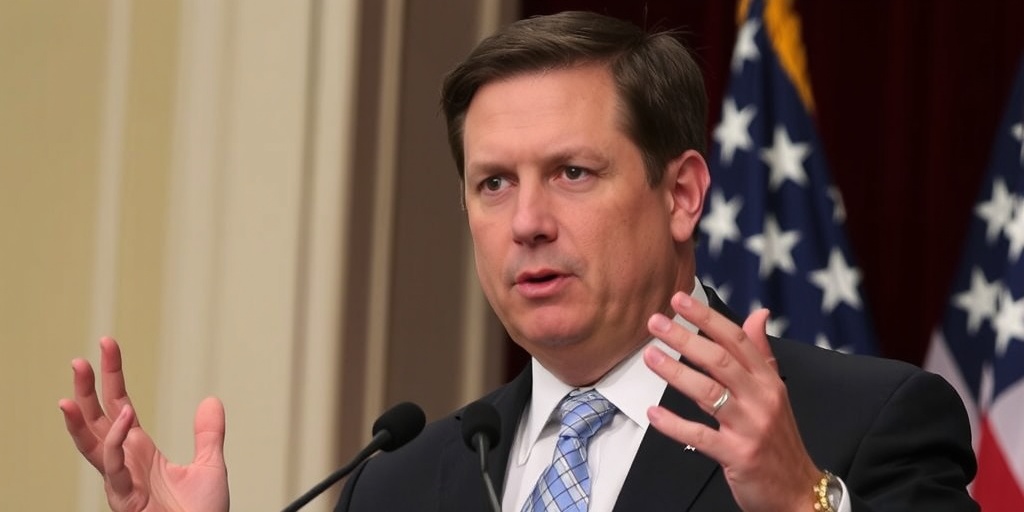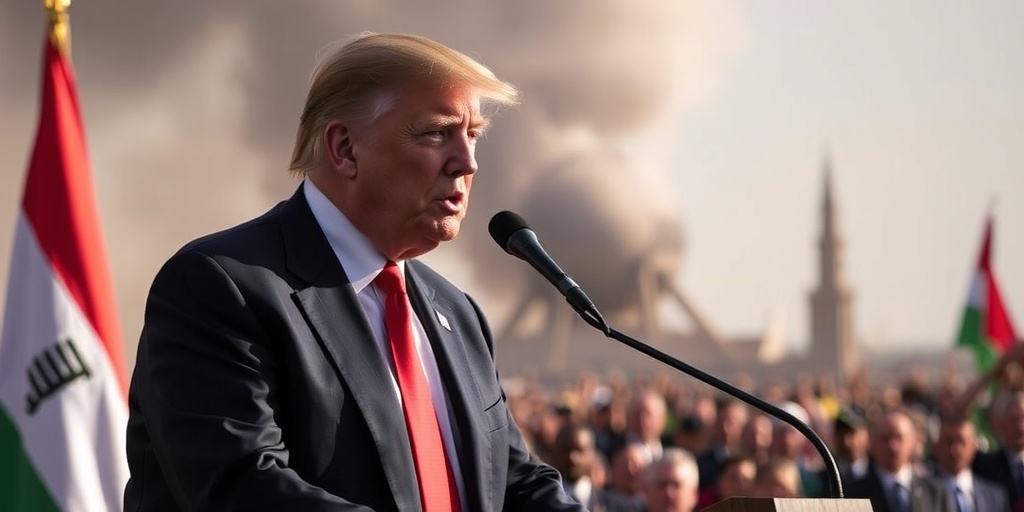Now Reading: Trump Plans Call with Putin to Discuss Ukraine War Resolution
-
01
Trump Plans Call with Putin to Discuss Ukraine War Resolution
Trump Plans Call with Putin to Discuss Ukraine War Resolution
Title: Trump Optimistic About Negotiations to Halt Fighting in Ukraine
In a statement made aboard Air Force One, former President Donald Trump expressed his optimism regarding potential negotiations between the United States, Russia, and Ukraine aimed at halting hostilities in Ukraine for a period of 30 days. Trump announced that he planned to speak with Russian President Vladimir V. Putin in the coming days, hoping to make significant progress towards ending the conflict.
“We want to see if we can bring that war to an end,” Trump told reporters on Sunday evening. “Maybe we can. Maybe we can’t, but I think we have a very good chance.” His words reflect a renewed diplomatic effort to address the ongoing crisis that has resulted in immense suffering for the citizens of Ukraine since the conflict’s escalation.
During his remarks, Trump noted that discussions had progressed over the weekend regarding key issues such as territory and critical infrastructure. He indicated that both sides were considering "dividing up certain assets" tied to land and energy resources. "I think we’ll be talking about land; it’s a lot of land. It’s a lot different than it was before the war, as you know,” he elaborated, emphasizing the complexities involved in negotiating terms related to territory that has shifted due to the ongoing conflict.
Trump’s references to power plants further highlight the critical nature of energy resources in the talks. He commented, “That’s a big question. But I think we have a lot of it already discussed very much by both sides — Ukraine and Russia.” This indicates a degree of readiness among the parties to come to an understanding that could pave the way for future stability in the region.
Supporting Trump’s optimism, Steve Witkoff, the U.S. special envoy to the Middle East, revealed on CNN that he had a productive meeting with President Putin last week. This session lasted between three to four hours, during which they reportedly “narrowed the differences between them.” Although specific details of their discussions remain confidential, Witkoff’s assertion points to a possible thaw in relations that could facilitate progress in the ongoing conflict.
While Trump and Witkoff project a sense of hope, the situation remains inherently precarious. Ukraine’s President Volodymyr Zelensky has expressed concerns regarding the negotiations, accusing Putin of intentionally stalling talks to gain a tactical advantage over Ukrainian forces. According to Zelensky, these delays could undermine the possibility of a sustainable cease-fire agreement.
Amidst these diplomatic efforts, reports indicate that Ukraine has already expressed its support for a U.S.-backed cease-fire. This development signifies a critical step towards creating an environment conducive to dialogue and easing hostilities in the region. Yet, as the situation evolves, the challenges remain formidable, and all parties must navigate a multitude of issues that have arisen throughout the course of the conflict.
The ongoing discussions about land distribution and energy resources underscore the complex interplay of military, economic, and geopolitical factors that must be addressed. The division of territory, in particular, is fraught with historical tensions and competing national interests that complicate negotiations.
In summary, while optimism surrounds the potential for a cease-fire and ensuing negotiations, the path forward remains uncertain. Trump’s scheduled conversation with Putin could be a pivotal moment in the quest for peace, but it will require resolve and commitment from all involved parties to translate this optimism into tangible outcomes. The international community will be watching closely as the days unfold, hopeful for a resolution that not only ends the fighting but also lays the groundwork for long-term stability in Ukraine and the broader region.
Stay Informed With the Latest & Most Important News
Previous Post
Next Post
-
 01New technology breakthrough has everyone talking right now
01New technology breakthrough has everyone talking right now -
 02Unbelievable life hack everyone needs to try today
02Unbelievable life hack everyone needs to try today -
 03Fascinating discovery found buried deep beneath the ocean
03Fascinating discovery found buried deep beneath the ocean -
 04Man invents genius device that solves everyday problems
04Man invents genius device that solves everyday problems -
 05Shocking discovery that changes what we know forever
05Shocking discovery that changes what we know forever -
 06Internet goes wild over celebrity’s unexpected fashion choice
06Internet goes wild over celebrity’s unexpected fashion choice -
 07Rare animal sighting stuns scientists and wildlife lovers
07Rare animal sighting stuns scientists and wildlife lovers



















